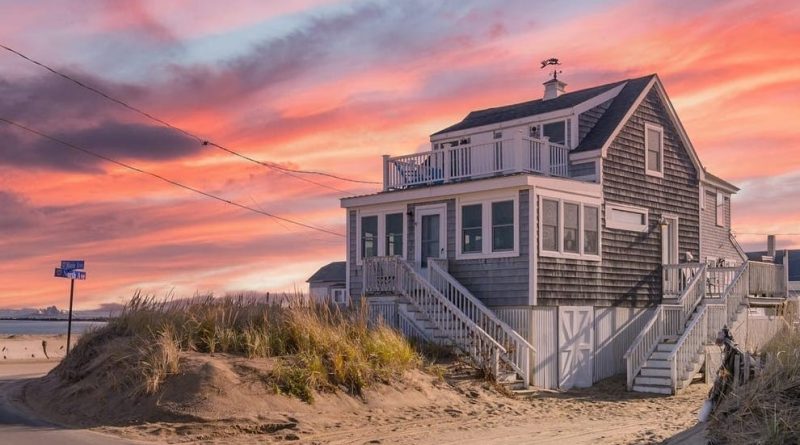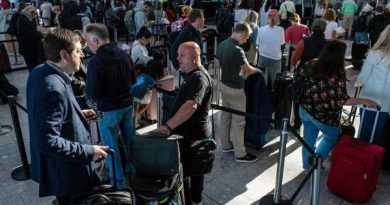Airbnb is getting roasted by travelers complaining about extensive cleaning fees and rules
- Some Airbnb customers are complaining about what they say are excessive fees and rules for rentals.
- Social media posts showed some fees totaling more than the nightly rate of the rental itself.
- Airbnb has seen surging demand for rentals as travel begins to pick up again.
- See more stories on Insider’s business page.
Airbnb is trending on Twitter this week as customers complain on social media about what they say are excessive fees and rules for listings on the rental site.
“We gotta stop airbnb,” one customer tweeted, including a screenshot of the fee breakdown for a two-night rental: $198 for the room itself, $413.95 total.
The tweet garnered more than 200,000 likes, and other Airbnb customers began chiming in with their own experiences and jokes lamenting issues ranging from intrusive hosts to the company’s impact on local housing prices.
“AirBnb and Uber trippin. We back to yellow cabs and hotels this summer. They not gonna fee us to death,” one person tweeted.
“I spend the first 30 minutes every time searching for cameras whenever I go to one.” tweeted another.
“Hotels don’t bug you about anything. AirBnB hosts are insane,” another person said.
Airbnb responded in a blog post explaining its fee structure, saying hosts set nightly rates and cleaning fees, that the company typically charges a service fee of around 14%, and that local governments often charge taxes (similar to other hospitality businesses).
Load Error
Airbnb has long positioned itself as a low-cost alternative to hotels. But a surge in demand as travel picks up again – the company reported a 52% year-over-year surge in gross bookings last quarter – could be contributing to an increase in prices for Airbnb rentals as well. The company has also raised its service fee on several occasions over the years.
However, many of the complaints concerned “hidden” fees that aren’t displayed to users when they’re browsing listings, like taxes and cleaning fees.
For years, Airbnb didn’t collect lodging and other taxes on behalf of its hosts, operating in a legal gray area and aggressively fighting local officials’ efforts to tax Airbnb listings like hotel rooms, likely causing cities to lose out on significant tax revenues as hosts may not have paid those taxes on their own.
As regulators have sought to crack down, Airbnb has entered into “voluntary” agreements with many local governments, promising to collect taxes on behalf of hosts, which is why customers may have seen higher taxes on more listings over the years.
While Airbnb said in its blog post that it has generated $3.4 billion in taxes in the past seven years, Bloomberg reported last year that some governments believe they may be still missing out on 75% of the lodging taxes they’re owed.
But cleaning fees and house rules are set by hosts, so customer complaints along those lines reflect another tension Airbnb has encountered as it grows: striking the right balance between allowing hosts to express their individuality and ensuring a consistent and high-quality experience for guests at scale.
Airbnb, originally founded as AirBed&Breakfast, markets itself as a way to connect guests with unique local hosts and experiences. But as it has grown, it has had to wrestle with more instances of scam and low-quality listings, as well as guests trashing listings and hosting illicit parties, some of which have turned deadly.
“You want things to be professional in terms of the quality of the stay, you want to have standards … but will Airbnb lose its soul in the process?” Dennis Schaal, executive editor at travel industry news and research site Skift, previously told Insider.
At the same time, Airbnb’s increasing popularity has attracted hordes of corporate real estate owners and professional property managers to its platform, many of whom own or operate dozens of listings within the same city. Skift reported in March that, according to analytics site AirDNA, just 5% of hosts own or operate nearly a third of all Airbnb listings, reflecting the massive power wielded by corporate and professional hosts.
That shift has likely been driving up rent and housing prices in neighborhoods with Airbnb listings, according to multiple research studies in recent years.
That impact has complicated Airbnb’s attempts to portray its hosts as local residents offering a spare room to budget-conscious travelers, rather than wealthy out-of-towners and corporate landlords, as one user alluded to on twitter.
In many of Airbnb’s largest markets, especially in Europe, state and local officials are weighing new regulations on Airbnb, The Information reported last week, which could lead to even higher fees for customers.
Source: Read Full Article



